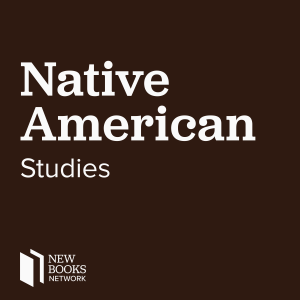
New Books in Native American Studies
Society & Culture

Tony Tekaroniake Evans, "Teaching Native Pride: Upward Bound and the Legacy of Isabel Bond" (Washington State UP, 2020)
 2021-02-03
2021-02-03
Download
Right click and do "save link as"
In 1877, Eloosykasit was on his way Tolo Lake, a gathering place frequented by the Nez Perce, when he heard news of the Wallowa band's flight from the U.S. Army. Only seventeen at the time, Eloosykasit elected to remain with the migrant Nez Perce, arming himself with a rifle abandoned at White Bird Canyon, and following Chief Joseph on toward Montana. Over a century later, in the summer of 1989, Eloosykasit's descendant, Josiah Pinkham, traced the same path as part of an immersive summer program organized entirely around the Chief Joseph Trail. The trip was but one of many ways that the Upward Bound Program - based out of University of Idaho and known regionally as "the Indian Program" - provided Indigenous and non-Indigenous students alike with experiences that recentered Niimíipuu (Nez Perce) and Skitswish (Coeur D'Alene) history and culture. Well-known across the Nez Perce Reservation, Coeur D'Alene Reservation, and nearby communities, Idaho's Upward Bound Program serves as the focus of journalist Tony Tekaroniake Evans' latest book, Teaching Native Pride: Upward Bound and the Legacy of Isabel Bond (Washington State University Press, 2020).
Drawing on dozens of interviews with former Upward Bound participants and instructors, Evans traces the development of the program under longtime coordinator Isabel Bond, who has spent decades working to support local Indigenous youth through education. Evans weaves historical narratives both old and recent into a story of community-building and cultural appreciation. Though situated deeply in Nez Perce and Coeur D'Alene history and homelands, Evans' Teaching Native Pride shows the ways that Bond's Upward Bound Program, in many ways, serves as a model for educational experiences that highlight the importance of Indigenous pasts, persistence, experiences, and expertise.
Annabel LaBrecque is a PhD student in the Department of History at UC Berkeley. You can find her on Twitter @labrcq.
Learn more about your ad choices. Visit megaphone.fm/adchoices
view more
More Episodes
012345678910111213141516171819
Create your
podcast in
minutes
- Full-featured podcast site
- Unlimited storage and bandwidth
- Comprehensive podcast stats
- Distribute to Apple Podcasts, Spotify, and more
- Make money with your podcast
It is Free
- Privacy Policy
- Cookie Policy
- Terms of Use
- Consent Preferences
- Copyright © 2015-2024 Podbean.com





